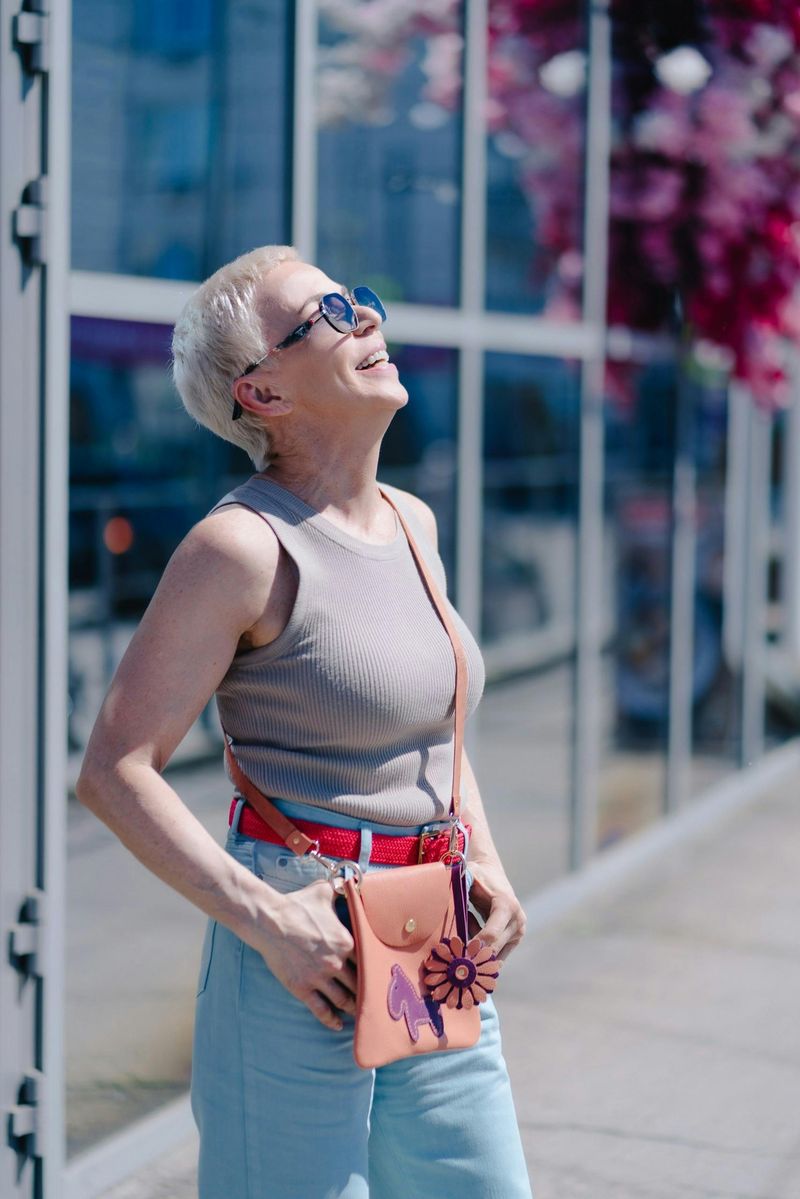First impressions happen in a flash, but their impact can last forever. Before you even introduce yourself, people are already forming opinions based on subtle cues you might not realize you’re sending. These silent signals shape how others see you, affecting everything from casual encounters to job interviews. Understanding what others notice first can help you put your best foot forward in any situation.
1. Your Smile (or Lack of One)
A genuine smile creates an instant connection. When your eyes crinkle and your face lights up, people feel welcome in your presence.
On the flip side, a missing smile can create an invisible barrier. People might wonder if you’re unhappy, unapproachable, or simply disinterested in connecting. Even a slight, natural smile signals openness.
2. Your Eyes
Windows to the soul isn’t just a poetic phrase—it’s a psychological reality. Your eyes reveal confidence, curiosity, or even anxiety before you speak a single word.
People instinctively read micro-expressions around your eyes, picking up on sincerity or deception. Those quick glances downward might signal shyness, while steady gazing shows engagement.
Even pupil dilation happens unconsciously when we’re interested in someone or something, a biological response we can’t fake. The emotions in your eyes form an unspoken language that others read fluently, often without realizing they’re doing it.
3. Your Posture
Standing tall signals self-assurance and competence. When your shoulders are back and your spine is straight, you’re physically taking up the space you deserve in the world.
Slumped shoulders tell a different story—perhaps of fatigue, defeat, or insecurity. People subconsciously interpret these physical cues as insights into your mental state and overall confidence level.
Research shows that good posture not only affects how others perceive you but also changes your own hormone levels, increasing testosterone and decreasing cortisol. This creates a powerful feedback loop where standing tall actually makes you feel more confident from the inside out.
4. Your Style
Clothing choices broadcast signals about your personality, attention to detail, and even your mood that day. The colors you wear might show creativity or conservatism, while fit demonstrates self-awareness.
Fabric quality, clothing condition, and thoughtful accessories all contribute to an instant assessment of your personal standards. Even intentionally casual looks reveal deliberate choices about how you want to be perceived.
Remember that “appropriate” varies wildly by context—what works in an art gallery might fail in a boardroom. Your style isn’t just about fashion but about showing respect for the situation and understanding social cues, proving you’re aware of the world around you.
5. Your Grooming
Neat hair, clean nails, and overall tidiness speak volumes about your attention to detail. These small elements combine to create an impression of someone who values themselves and respects others enough to present their best self.
Grooming isn’t about perfection or following trends—it’s about intentionality. A well-kept beard shows the same care as perfectly styled hair; both demonstrate thoughtfulness.
Studies show that well-groomed individuals are perceived as more competent and trustworthy, even when other factors are identical. These quick assessments happen before you’ve said a single word.
6. Your Energy
Energy is contagious. Whether you bring calm steadiness or vibrant enthusiasm into a room, people feel it immediately. This invisible force influences the entire interaction before the conversation begins.
Some naturally project peaceful confidence that puts others at ease. Others radiate excitement that energizes everyone around them. Neither is inherently better—different situations call for different energies.
Your internal state creates external ripples through subtle cues: breathing patterns, movement speed, and micro-expressions. People subconsciously mirror these signals, which is why anxious energy can make everyone uncomfortable, while grounded presence can settle an entire room.
7. Your Body Language
Arms crossed tightly might signal defensiveness, while open gestures invite connection. The angle of your body—whether facing someone directly or turned slightly away—reveals your level of engagement without words.
Fidgeting with objects, touching your face, or shifting weight frequently can suggest nervousness or discomfort. These movements happen below conscious awareness but broadcast your emotional state.
Even walking style communicates confidence or hesitation. A purposeful stride suggests direction and certainty, while tentative steps might indicate uncertainty. Body language experts estimate that these nonverbal cues account for over half of the information others gather about you in those critical first moments.
8. Your Scent
Fragrance creates powerful memory associations that linger long after visual impressions fade. Whether it’s a carefully chosen perfume or natural cleanliness, your scent creates an invisible but powerful presence.
Our olfactory system connects directly to the brain’s emotional center, making scent memories particularly strong. People might not consciously register your specific fragrance, but they’ll remember how it made them feel.
Scent is perhaps the most primal first impression—research shows we can detect confidence, fear, and even illness through subtle scent cues we process subconsciously.
9. Your Voice Tone
Vocal quality conveys emotion and intention more powerfully than word choice. A warm, measured tone suggests confidence and trustworthiness, while high-pitched or rapid speech might signal anxiety.
Volume speaks volumes—too loud can seem aggressive, too soft might suggest insecurity. The sweet spot communicates self-assurance without dominating the acoustic space.
Melody and rhythm in speech create immediate impressions about your emotional state and background. Research shows people make snap judgments about intelligence, education level, and leadership ability based solely on voice. The good news? Unlike many physical attributes, vocal qualities can be developed through conscious practice, making your voice a powerful tool for shaping first impressions.
10. Your Handshake (or Greeting Style)
Physical greetings create immediate tactile impressions. A firm, dry handshake with good eye contact suggests confidence without aggression. The legendary “dead fish” or overly crushing grip both send unintended messages.
Timing matters too—holding on too long creates discomfort, while pulling away too quickly might signal disinterest. Cultural awareness is crucial, as appropriate greetings vary worldwide.
11. Your Level of Confidence
Authentic confidence has magnetic appeal. It’s not about being the loudest or most dominant—it’s about seeming comfortable in your own skin. This quality radiates through everything from posture to conversation style.
Overconfidence backfires quickly, creating impressions of arrogance or insecurity in disguise. True confidence includes the ability to listen well and admit when you don’t know something.
Research shows confidence is often rated as more important than actual competence in initial impressions. The good news? Confidence behaviors can be practiced and developed, even when you don’t initially feel it inside.
12. Your Facial Expressions
Micro-expressions flash across your face in milliseconds, revealing genuine emotions you might not intend to share. These lightning-quick signals are nearly impossible to fake or suppress completely.
Your default expression—what some call “resting face”—creates a baseline impression when you’re not actively engaging. Some naturally present as serious or stern when relaxed, while others have a more open default.
When facial cues match your words, people sense authenticity. Mismatches trigger subconscious alarm bells about potential deception.












